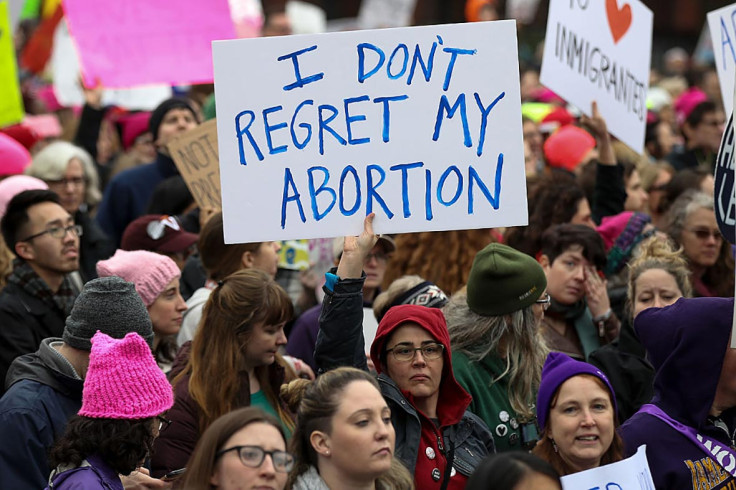Outrage in UK as woman gets sentenced to prison over an abortion
In the UK, abortion is generally legal for up to 24 weeks, but after 10 weeks, it is to be carried out under medical supervision.

A court in the UK sentenced a woman to 28 months in prison for terminating her pregnancy after the permissible legal ten-week window had passed.
She was jailed under the Offences Against the Person Act, of 1861 on abortion. The sentencing has led to an outrage amongst women's rights activists and campaigners.
The 44-year-old woman admitted to having an abortion through the "pills by post" scheme launched by the UK government during the Covid-19 pandemic. The scheme was launched as a temporary measure, but was later extended by the government indefinitely.
It allowed women to get medication after a remote consultation for pregnancies up to 10 weeks. The woman, in this case, did procure the abortion pills legally, but she took them after the 10-week period had passed.
The incident came to light in May 2020 after she had to call emergency services due to labour pain. She was taken to a nearby hospital, where she delivered the baby. A post-mortem of the baby later revealed that its cause of death was abortion pills.
The doctors later found out that the foetus was between seven and eight months old when the woman took the pills. According to the coroner's report, no sign indicated that the foetus took an independent breath after the delivery.
Initially, the woman had pleaded not guilty to an offence of child destruction but later pleaded guilty to an alternative charge of administering drugs or using instruments to procure abortion.
In the UK, abortion is generally legal for up to 24 weeks, but after 10 weeks, it is either carried out in a clinic or a hospital. According to the 1861 legislation, a woman who ends a pregnancy without obtaining legal permission from two doctors can face up to life imprisonment.
Medical bodies, women's rights organisations and MPs have been demanding the decriminalisation of abortion in the UK for decades now. And the jailing of the woman has only intensified the protests against it.
Jailing a woman for taking abortion pills after the UK legal time limit, leaving behind 3 children, is unjust.
— Apsana Begum MP (@ApsanaBegumMP) June 13, 2023
We need a reform of UK abortion law that centres women having the right to make decisions about their bodies without such punitive consequences.pic.twitter.com/7bgHodYegi
According to the British Pregnancy Advisory Service (BPAS), the number of women facing police probes under abortion laws has increased over the last three years. The BPAS has called for parliamentary action against the current laws to protect women's rights over their bodies.
"We are shocked and appalled by the decision," said Clare Murphy, the chief executive of BPAS.
"No woman can ever go through this again. In their sentencing remarks, the judge made it that women will only be protected from prosecution if MPs bring forward legal change. There has never been a clearer mandate for parliamentary action, and the need has never been so urgent," she added.
Labour MP Stella Creasy has also spoken against the judgment and called for a law change.
"This case reveals bitter truth, contrary to what some claim, abortion is not legal in England – and you can be prosecuted for having one," she wrote in a Twitter post. "No other healthcare procedure has such a status. No other patient group would be treated this way. It's time to change [the] law and trust women."
Meanwhile, the Women's Equality Party, the Fawcett Society, and the British Pregnancy Advisory Service have decided to take part in a march as a sign of protest against existing abortion laws on Saturday.
This woman, who is a parent to other children including one with additional support needs, has just been sentenced to 28 months in prison for procuring the drugs to induce an abortion.
— Vonnie (@VonnSand) June 12, 2023
In the UK, in 2023, women’s decisions about their body autonomy can and does lead to prison. https://t.co/CvVaHF8RoX
"I think this case has rightly really shocked people and I think that is opening up a new level of political debate," The Guardian quoted Jemima Olchawski, the chief executive of the Fawcett Society, as saying.
The decision to have an abortion is personal and complicated, and the likelihood of a woman undergoing an abortion without an informed decision is low to nonexistent. In times when women should be trusted with the choices they make, they are instead being punished.
Countries like the United States which have been proponents of free will and personal liberty for centuries have also made women's bodies the target of their politics.
Recently, the US Supreme Court overturned its historic Roe v. Wade ruling. Prior to the ruling, as many as 30 US states had a ban on abortions, and the ruling had come as a huge sigh of relief for women.
However, the latest decision to overturn the ruling has undone years of efforts to protect women's rights. States like Alabama, Arkansas, Kentucky, Louisiana, Missouri, Oklahoma, South Dakota, Utah, and Wisconsin have banned nearly all abortions after last year's ruling that eliminated the constitutional right to an abortion.
© Copyright IBTimes 2025. All rights reserved.






















